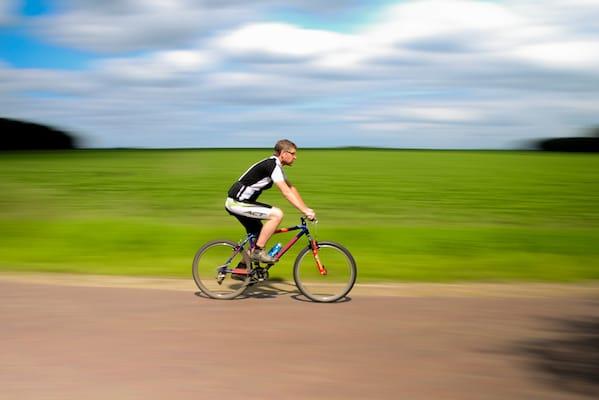Cyclists are elated over the introduction of the first portion of the Radschnellweg, an environmentally friendly German bicycle highway (Autobahn).
Germany has long been a pioneer with its transportation links – the Autobahn and Autobahn Plus are known globally for their lax stance on speeding, as well as their efficiency. Now, German cyclists can enjoy the first part of their own Autobahn. The first five kilometers of this highway for bicycles was opened just prior to the New Year. Providing modern transport links to 10 major cities across Germany. The final plan is for the highway to span over 100 kilometers, with experts hoping to take 50,000 cars off the road.
With roughly two million people living within two kilometers of the new German bicycle highway, it is hoped that this project will alleviate the substantial congestion on the roads. These ‘velo’ routes feature four meter wide lanes that allow for overtaking and cross roads leading to increased efficiency of the traffic. The wellbeing of the cyclist has been kept in mind throughout construction. The entire system is to be fully illuminated at night time and cleared of snow during winter providing high safety standards.
The city planners, having worked on the velo routes, made every effort to make them as comfortable as possible for commuters. The final route will also connect four universities. The route, which will pass through Bochum, Duisburg, Hamm and 7 other German cities will use disused railway tracks across the Ruhr industrial region.

A recent surge in cycling has helped further a project such as the Radschnellweg, as electric bicycles become more and more famous as a way of getting around. Electric bicycles also make it much feasible to commute longer distances. According to the German Bicycle Club ADFC ten percent of all trips in the country are now done by bicycle. Moving forward, projects like these will help with the big city commutes. Burkhard Stork, manager of the ADFC, said: ‘Building highways in cities is a life-threatening recipe from the 1960’s. No one wants more cars in cities.’
Mr. Stork is not wrong. Rush hour in big cities across the world, not just Germany, is becoming a huge concern, partly for any commuters sanity but more for the environment. Based on studies of the US Environmental Protection Agency, the exhaust pipe of one automobile pumps about 4,7 metric tons of carbon dioxide into the atmosphere.
The development group behind the project, RVR, have seen success in the Netherlands and Denmark with similar projects before making its way to Germany. Unfortunately, due to legislative issues there may be some impediments. The federal government does not usually take financial responsibility for any maintenance and upkeep of projects such as this, leaving local authorities struggling. However, ongoing talks with RVR and the German federal government has offered hope that a $196 million cheque will keep the project alive.
